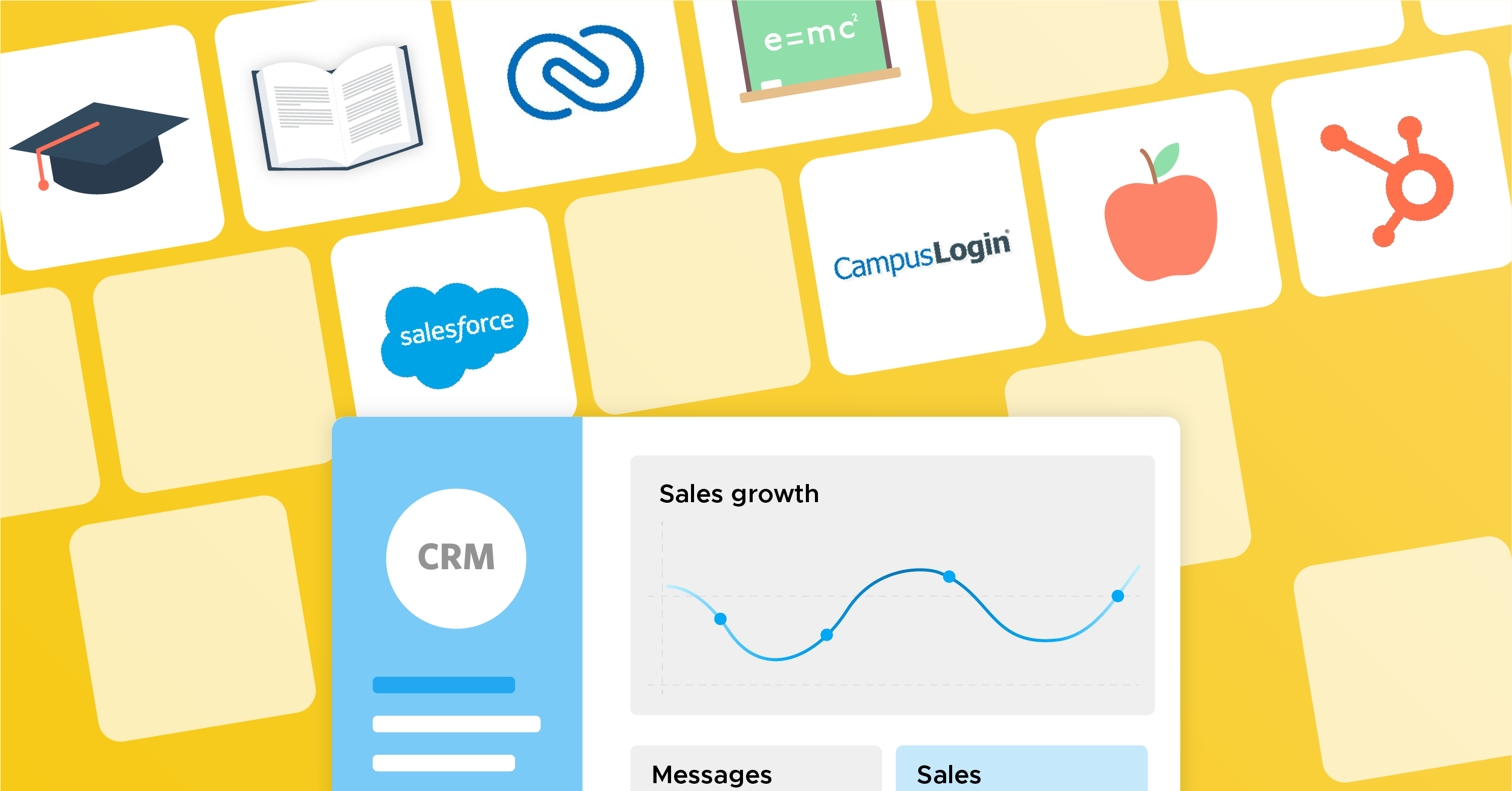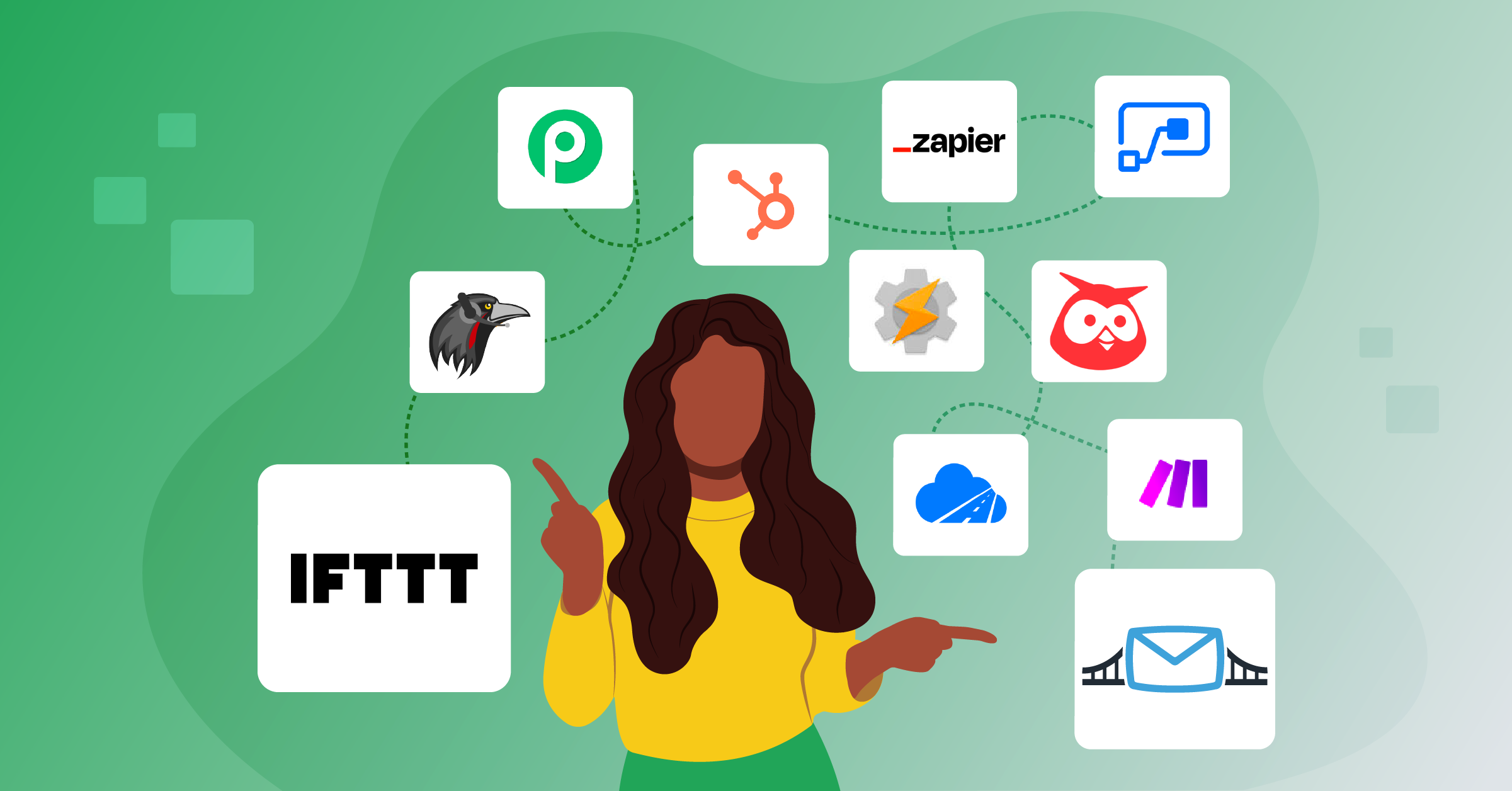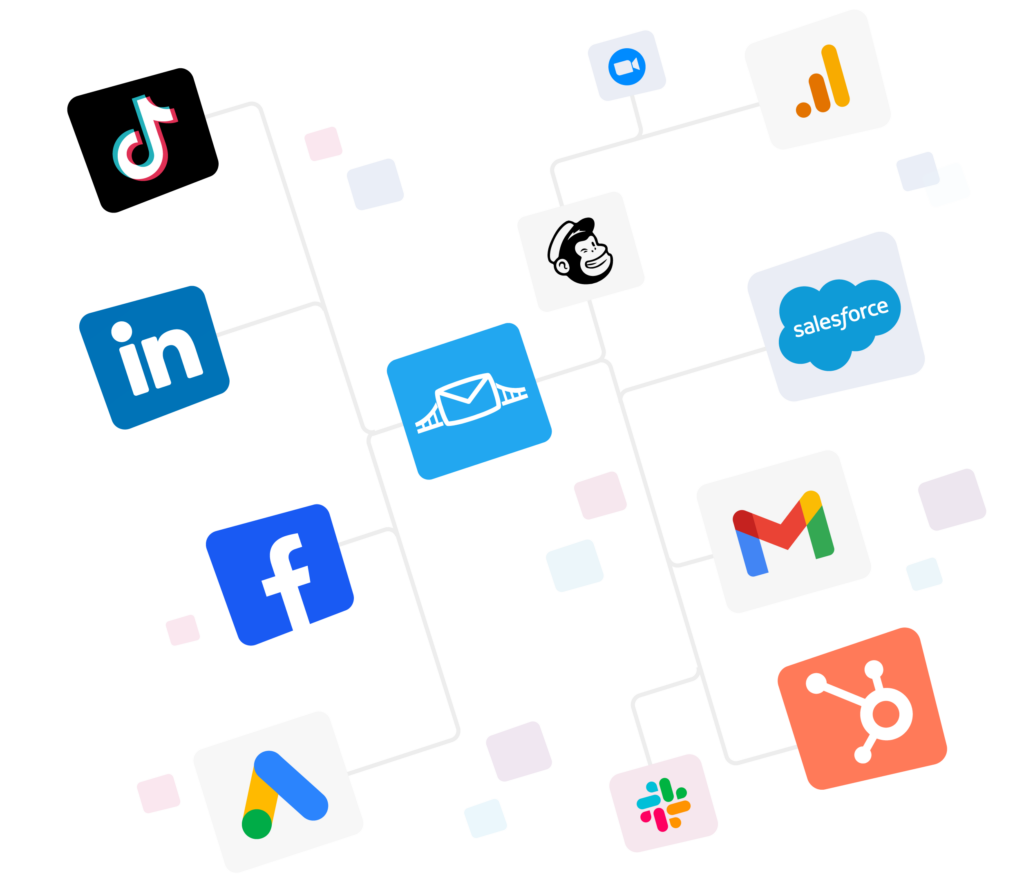
Without a proper CRM for marketing agency ops, you cannot meet client expectations, privacy rules, and AI-fueled personalization.
High-performing agencies are consolidating deal flow, client comms, and ad-platform data into one source of truth and automating the handoffs.
That’s the job of a CRM, but not a generic one. You and your team need a connected stack that is in sync with your ad channels and data layer.
With so many options, you can only choose the best if you let expert insight and advice guide your decision.
In this article, you’ll find out what matters and which tools rise to the top for marketing agencies in 2026. This includes tools and CRM integrations that help you create a solid system, such as:
Best CRM for marketing agencies features: What to look for
AI adoption is exploding. As of 2025, 78% of companies used AI for at least one business task. You might be tempted to look for tools that offer all-resolving AI as a native feature, or even outsource one.
However, the results you get will depend on the data foundation: your CRM, integrations, and b2b leads database management.
A CRM for marketing agencies should be the switchboard for your entire revenue engine, including sales, service, marketing, and creative ops.
Here are the must-haves for the best CRMs for agencies:
- Multi-pipeline and multi-brand support. You need distinct pipelines, custom objects and fields, and granular permissions so freelancers don’t see what they shouldn’t.
- Native or no-code ad-platform syncs, especially for real-time lead capture from Meta, LinkedIn, TikTok, and Google into your CRM. Also, the ability to sync your audiences back to those platforms and server-side conversions.
- Marketing automation tools you’ll actually use in everyday workflows, routing by client or vertical, and AI helpers. Remember, if your team can’t build automations without a developer, you’ll be giving them more trouble than help. You need codeless automation.
- APIs, webhooks, and custom bridges, because you will need a connected data technology stack.
- Reporting that ties to revenue. Campaign-to-cash visibility is non-negotiable in 2026. Data Cloud and AI narratives are useful only if your pipeline data is clean.
Here are all the tactics you need for lead generation as a digital marketing agency.
5 Best CRM for marketing agencies (and who each one’s really for)
1. HighLevel CRM for marketing agencies

If you want an all-in-one stack that covers CRM, funnels, and messaging, the HighLevel (GoHighLevel) CRM is a great one. Besides, it offers white-label options and deep workflow control.
It offers a wide range of features, including Inbound Webhook triggers, which enable you to integrate external data into workflows in real time. For WooCommerce-based businesses, GS Plugins’ WooCommerce plugins integrate smoothly with GoHighLevel workflows, allowing store actions and customer data to flow cleanly into automation and CRM pipelines.
However, you’re the admin. If you won’t maintain automations, you’ll collect half-working flows.
You can use LeadsBridge’s Outgoing or Classic Webhook connectors to deliver ad-platform leads (Meta, LinkedIn, TikTok, Google) straight into a HighLevel Inbound Webhook workflow.
From there, you’ll be able to trigger SMS and email communications, transfer pipelines, and send incoming lead alerts on autopilot.
2. HubSpot InC CRM for marketing agencies

HubSpot is for you if you want a clean UX, strong marketing automation, and a huge app marketplace.
It offers an integrated suite (Marketing, Sales, Service) if your agency needs all that. Recent reviews still rank this platform as one of the best free CRMs with deep integrations across the ecosystem.
You can take your HubSpot CRM to the next level with LeadsBridge. Needless to say, LeadsBridge partners with HubSpot, as well as the leading advertising platforms such as Meta, Google, TikTok, LinkedIn, and more.
- Lead Sync: Pipe the leads you generate on any of these advertising platforms into HubSpot in real time and with maximum security.
- Audience Sync: Feed HubSpot lists to LinkedIn Matched Audiences for on-platform precision.
- Conversion Sync: Send conversion events to Meta via Conversions API for a much more accurate attribution.
3. Microsoft Dynamics 365 CRM for marketing & advertising agencies

Do you use Microsoft family tools like Outlook, Teams, and Power BI extensively? Or, do you run an agency that handles complex B2B sales motions? If yes, Microsoft Dynamics 365 is a great fit.
It’s flexible, secure, and syncs seamlessly with the Microsoft stack. If your data already lives in Entra or Power Platform, then this CRM can be a natural extension.
You can use automated data bridges to stream your ad-platform leads into Dynamics 365 CRM. Then use this data for your marketing and advertising agency workflows without having to do any manual uploads.
You can also use automation to keep CRM segments synced to paid channels for CRM retargeting that actually hits consented users.
This feedback loop can be extended to conversion tracking with server-side signals for Meta and LinkedIn.
4. Salesforce® CRM for marketing agencies

Salesforce® is for larger agencies, multi-brand groups, or teams needing custom objects, enterprise permissions, and advanced analytics.
Salesforce®’s Data Cloud and AI agenda continues to push toward activation-ready customer data. It’s possibly the most future-proof option out there, given that you implement it well.
LeadsBridge lets you build bridges that send your lead ads data into Salesforce® instantly.
You can also use Audience Sync to keep lists fresh across channels for remarketing and exclusions.
Conversions API and LinkedIn Conversion API integrations, on the other hand, let you close the loop on attribution. This data can also be used for creating flawless customer journey advertising campaigns.
5. Zoho CRM for marketing agencies
Zoho is mindful of your budget. So, if you run a cost-sensitive agency that still needs automation, customization, and reporting, this one is for you.
With your subscription, you’ll receive substantial value that is extendable within the Zoho ecosystem and offers sufficient flexibility for most SMB agencies.
You can truly use this CRM when every lead from Meta, LinkedIn, Google, and TikTok gets transferred to Zoho in real-time for instant nurturing and follow-up.
Having an interconnected stack also means you can build and refresh custom audiences from Zoho segments and target them better. Of course, you need always-up-to-date data to do that.
Then again, you can create a feedback loop for precision conversion tracking:
Want to take a look at the strategies for your lead generation as an agency? Find out more here.
Takeaways
Whichever you choose, don’t get a specialized CRM for agencies if you have no data management strategy yet. Running ads for clients on high-yielding platforms like Meta or Google is only one part of the equation.
To make it worthwhile, you need data synchronization. It means gathering data from ad platforms, new and old audiences, conversions, and more to create a data-backed system and plan of action.
That’s how you get the compounding gains modern CMOs expect, and also where most agencies still fall short.
Discover all LeadsBridge’s automation solutions tailored for marketing agencies here.
























